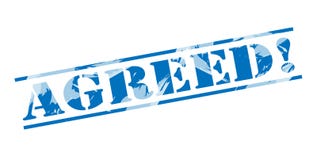My thoughtful friends provide an energetic discourse, and the surprise that frequently emerges -- they agree. Not on the candidates, perhaps, but on the issues. The common ground for both:
- Concern about incautious change
- Concern about injustice (discrimination, abuse, oppression)
- Support for national values -- life, liberty, equality, ...
- Sanctity of life and the defense of the weak, or so we all say
- Concern for children, their safety and health, and their future
- Responsible and accountable government and politicians

The Great Divide emerges when we get to the details.
- Both right and left understand that poverty is not a choice.
- While the left supports assisting those in need, they're unwilling to wait for them to catch up.
- The right are content to leave them behind with nothing, expecting things to sort themselves out.
- On both sides, many are left behind more or less permanently.
- Both right and left know that terminating a pregnancy ends the life of a child.
- While the right opposes termination, they decline to assist the survivors.
- The left supports the termination as a choice mommies should get to make for any reason.
- On both sides, the baby suffers for the rest of its life.
- Both sides share a worldview that's only true for perhaps the wealthiest of the world's people, and neither understands who is responsible or why it works that way. The great divide is perhaps in front of us with the rest of the world on the other side.
What are the troubling issues humanity faces today?
- Government, purchased regulation, and rule by an elite?
- Marketplace abuse and extractive economics?
- Corporations, especially banks, now larger than countries?
- Rule by economic success rather than ethical success or human benefit ...
- Us vs. them?
Although it is somewhat natural to do, separating ourselves from others, cutting them off, angrily polarized ... that's below the bottom rung of morality, wishing another ill, ethically equal to bullying, abuse, and killing.
“You have heard that our ancestors were told, ‘You must not murder. If you commit murder, you are subject to judgment. But I say, if you are even angry with someone, you are subject to judgment! If you call someone an idiot, you are in danger of being brought before the court. And if you curse someone, you are in danger of the fires of hell. ... Go and be reconciled .... Then come and offer your gift to God."
So why? Is there something like that going on in our culture?
 Note: Foundational issues of conservatism and liberalism vary among us without precise definition. Politicians and the media are having a ball with the emotionally charged but ill-defined verbiage. This is perhaps the most confused run-up to a presidential election I've seen in my lifetime.
Note: Foundational issues of conservatism and liberalism vary among us without precise definition. Politicians and the media are having a ball with the emotionally charged but ill-defined verbiage. This is perhaps the most confused run-up to a presidential election I've seen in my lifetime.The left and right are more extreme than ever, moderates are missing from the political venue, and progress is extraordinarily difficult. We're a polarized nation, and the price is high.
Did we each choose to become so polarized, so divided? Or is it being done to us, and we've fallen for it.
And, there's little left of the original meaning of the words conservative and liberal.
😏
Update: 06/2018 -- The nation is further divided. Truth has become ideological, and citizens are inured to lies and false accusations. We've been given a fabricated threat of an outgroup described as murderers, terrorists, and rapists. They used to be just refugees. We've become accustomed to ethnic defamation, and now cruel abuse of children. ... not what I would consider progress.












